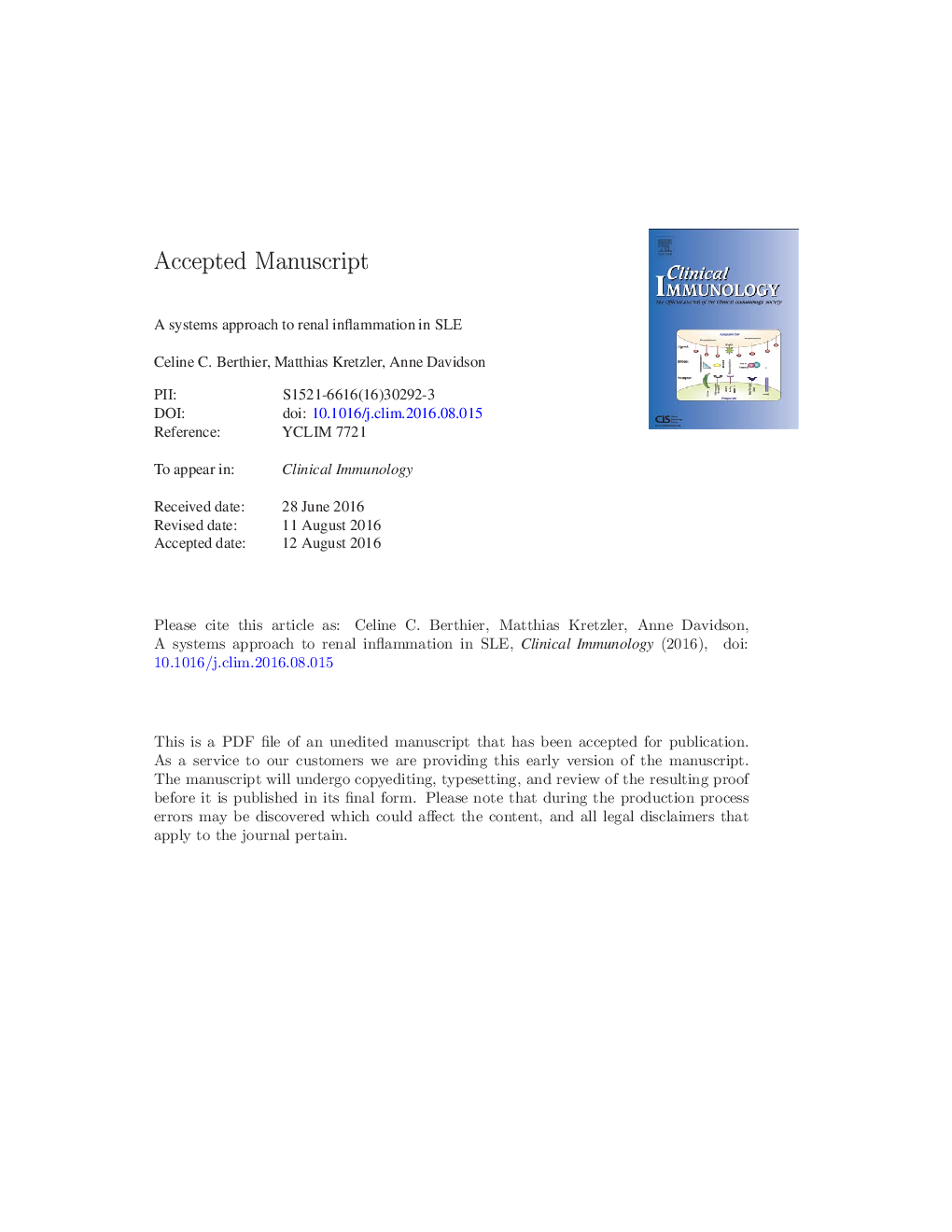| Article ID | Journal | Published Year | Pages | File Type |
|---|---|---|---|---|
| 8721482 | Clinical Immunology | 2017 | 35 Pages |
Abstract
Lupus disease and its complications including lupus nephritis (LN) are very disabling and significantly impact the quality of life and longevity of patients. Broadly immunosuppressive treatments do not always provide the expected clinical benefits and have significant side effects that contribute to patient morbidity. In the era of systems biology, new strategies are being deployed integrating diverse sources of information (molecular and clinical) so as to identify individual disease specificities and select less aggressive treatments. In this review, we summarize integrative approaches linking molecular disease profiles (mainly tissue transcriptomics) and clinical phenotypes. The main goals are to better understand the pathogenesis of lupus nephritis, to identify the risk factors for renal flare and to find the predictors of both short and long-term clinical outcome. Identification of common key drivers and additional patient-specific key drivers can open the door to improved and individualized therapy to prevent and treat LN.
Keywords
Related Topics
Life Sciences
Immunology and Microbiology
Immunology
Authors
Celine C. Berthier, Matthias Kretzler, Anne Davidson,
